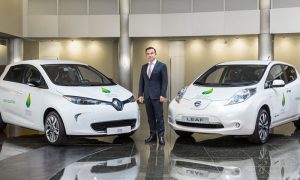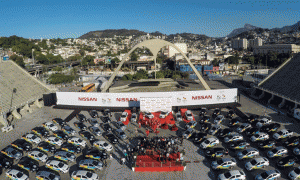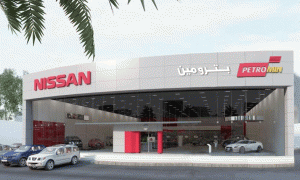Nissan unveils world’s first solid-oxide fuel cell vehicle
Zero-emission light-commercial van with 600km cruising range uses bio-ethanol to power cells

Nissan has revealed a prototype of the world’s first vehicle powered by a solid oxide fuel-cell (SOFC), which runs on bio-ethanol electricity and offers a cruising range of 600km.
The zero-emission model, an all-new light–commercial vehicle named e-Bio Fuel-Cell and premiered in Brazil on the sidelines of the Olympic Games, can rely on multiple fuels, including ethanol and natural gas, to produce high-efficiency electricity as a power source.
“The e-Bio Fuel-Cell offers eco-friendly transportation and creates opportunities for regional energy production… all the while supporting the existing infrastructure. In the future, the e-Bio Fuel-Cell will become even more user-friendly,” Nissan president and CEO Carlos Ghosn said in statement by the company.
“Ethanol-blended water is easier and safer to handle than most other fuels. Without the need to create new infrastructure, it has great potential to drive market growth.”
The e-Bio Fuel-Cell vehicle uses ethanol to charge a 24kWh battery, which enables a cruising range of more than 600km, Nissan said. The powertrain is clean, highly-efficient, easy to supply, and runs on 100% ethanol or ethanol-blended water. Its carbon-neutral emissions are as clean as the atmosphere, which will be part of the natural carbon cycle. Also, the e-Bio Fuel-Cell offers brisk acceleration and silent driving along with low-running costs, while boasting the driving range of a gasoline-engine vehicle, the Japanese auto giant added.
Bio-ethanol fuels are mainly sourced from sugarcane and corn. They are widely available in North and South America and are steadily gaining popularity in other parts of the globe. Nissan says the easy availability of ethanol and the low combustibility of ethanol-blended water will make the new vehicle economical and practical to run for the commercial segment and fleet operators who want to run a green fleet. The e-Bio Fuel Cell employs a system that is not heavily dependent or restricted by existing charging infrastructure. In the future, people may only need to stop by small retail stores to buy fuel off the shelf, the company added.















